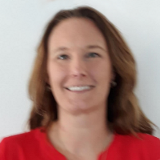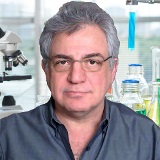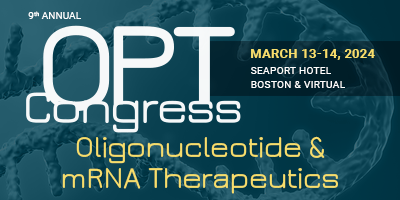短期课程
3月12日(二) 5:30 - 8:00 pm
SC1: Safety & Toxicity of Nucleic Acids
Instructors:
Xiao Shelley Hu, PhD, Vice President, Head of DMPK and Clinical Pharmacology, Wave Life Sciences
Sarah Lamore, PhD, DABT, Senior Director, Toxicology, PepGen, Inc.
Kuldeep Singh, PhD, Senior Director & Head Pathology, Wave Life Sciences Inc.
Topics to be discussed include:
- Different types of nucleic acid-based drugs
- Mechanisms-of-action and non-specific effects
- Current approaches to address non-specific and potentially toxic effects
Aimed at both novice and advanced nucleic drug developers, the course will:
- Introduce and explain the differences among various types of nucleic acid drugs
- Summarize our current understanding of the origins of non-specific and potentially toxic effects
- Provide direction on how to minimize the potential toxic effects of nucleic acid drugs
INSTRUCTOR BIOGRAPHIES:
 Xiao Shelley Hu, PhD, Vice President, Head of DMPK and Clinical Pharmacology, Wave Life Sciences
Xiao Shelley Hu, PhD, Vice President, Head of DMPK and Clinical Pharmacology, Wave Life Sciences
 Sarah Lamore, PhD, DABT, Senior Director, Toxicology, PepGen, Inc.
Sarah Lamore, PhD, DABT, Senior Director, Toxicology, PepGen, Inc.
 Kuldeep Singh, PhD, Senior Director & Head Pathology, Wave Life Sciences Inc.
Kuldeep Singh, PhD, Senior Director & Head Pathology, Wave Life Sciences Inc.
SC2: RNA Editing: Applications & Insights
Instructors:
Tod Woolf, PhD, Executive Director of Technology Ventures, Beth Israel Deaconess Medical Center; Co-Founder, ETAGEN Pharma
Ronald Emeson, PhD, Joel G Hardman Chair in Pharmacology, Professor of Biochemistry, Molecular Physiology & Biophysics and Psychiatry & Behavioral Sciences, Vanderbilt University
Shanhu Hu, PhD, Director, Platform Biology, Korro Bio Inc.
Topics to be discussed include:
- Introduction to different types of RNA editing
- Understanding adenosine deaminase acting on RNA (ADAR) and other editing events
- Tools for designing, delivering and enabling RNA editing
- High throughput screening to study the impact of RNA editing in cells
- Assays exploring the functional consequences of RNA editing for therapeutic development
- Comparing technologies for assessing editing and off-target effects
- Examples of how RNA editing has been used successfully
INSTRUCTOR BIOGRAPHIES:
 Tod Woolf, PhD, Executive Director of Technology Ventures, Beth Israel Deaconess Medical Center; Co-Founder, ETAGEN Pharma
Tod Woolf, PhD, Executive Director of Technology Ventures, Beth Israel Deaconess Medical Center; Co-Founder, ETAGEN Pharma
 Ronald Emeson, PhD, Joel G Hardman Chair in Pharmacology, Professor of Biochemistry, Molecular Physiology & Biophysics and Psychiatry & Behavioral Sciences, Vanderbilt University
Ronald Emeson, PhD, Joel G Hardman Chair in Pharmacology, Professor of Biochemistry, Molecular Physiology & Biophysics and Psychiatry & Behavioral Sciences, Vanderbilt University
 Shanhu Hu, PhD, Director, Platform Biology, Korro Bio Inc.
Shanhu Hu, PhD, Director, Platform Biology, Korro Bio Inc.
* 活动内容有可能不事先告知作更动及调整。
2024年 会议
方案










